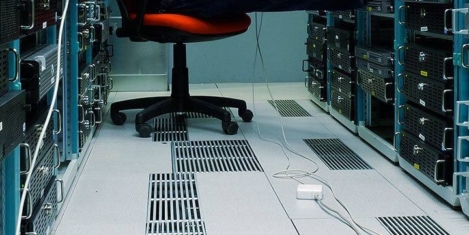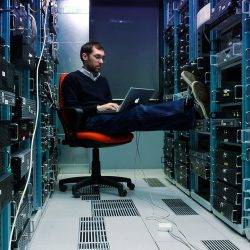February 14, 2017
UK workers not significantly concerned about robots taking their jobs 0
 Despite recent research suggesting that no job is safe from the introduction of robots to the workplace, the majority of British workers don’t seem to be overly concerned about the impact of new technology on their roles. In fact, more than two thirds (68 percent) are positive about the possible impacts of technology at work over the next ten years. This is according to a survey from Epson, which takes a closer look at UK workers’ attitudes. More than three quarters (76 percent) believe technology will open new possibilities for growth, and three quarters (75 percent) think it will increase organisations’ profits. Another 77 percent thinks new technologies will kill certain jobs, but more than half (55 percent) are ready to learn new skills and adapt. Just 16 percent of UK workers think companies are ‘excellent’ at monitoring technology advancements, and 12 percent think their companies are excellent at engaging with employees in the process of making decisions.
Despite recent research suggesting that no job is safe from the introduction of robots to the workplace, the majority of British workers don’t seem to be overly concerned about the impact of new technology on their roles. In fact, more than two thirds (68 percent) are positive about the possible impacts of technology at work over the next ten years. This is according to a survey from Epson, which takes a closer look at UK workers’ attitudes. More than three quarters (76 percent) believe technology will open new possibilities for growth, and three quarters (75 percent) think it will increase organisations’ profits. Another 77 percent thinks new technologies will kill certain jobs, but more than half (55 percent) are ready to learn new skills and adapt. Just 16 percent of UK workers think companies are ‘excellent’ at monitoring technology advancements, and 12 percent think their companies are excellent at engaging with employees in the process of making decisions.













 The more recent employment figures for London suggest that until the terms of Brexit are known and put in motion, the jobs market will remain cautious. This is according to the latest Morgan McKinley London Employment Monitor which found that despite an 81 percent increase in jobs available and an 83 percent increase in professionals seeking jobs; compared to a 115 percent increase in jobs this time last year, the 2017 spike was muted in comparison. The 83 percent increase in job seekers month-on-month is coupled with a 29 percent decrease, year-on-year. Contributing to the decrease is the trickling off of non-British EU nationals working in the City, who comprise up to 10 percent of its workforce. In a post-Brexit survey of professionals conducted by Morgan McKinley, these individuals reported either moving abroad, or considering leaving London because of Brexit.
The more recent employment figures for London suggest that until the terms of Brexit are known and put in motion, the jobs market will remain cautious. This is according to the latest Morgan McKinley London Employment Monitor which found that despite an 81 percent increase in jobs available and an 83 percent increase in professionals seeking jobs; compared to a 115 percent increase in jobs this time last year, the 2017 spike was muted in comparison. The 83 percent increase in job seekers month-on-month is coupled with a 29 percent decrease, year-on-year. Contributing to the decrease is the trickling off of non-British EU nationals working in the City, who comprise up to 10 percent of its workforce. In a post-Brexit survey of professionals conducted by Morgan McKinley, these individuals reported either moving abroad, or considering leaving London because of Brexit.





















